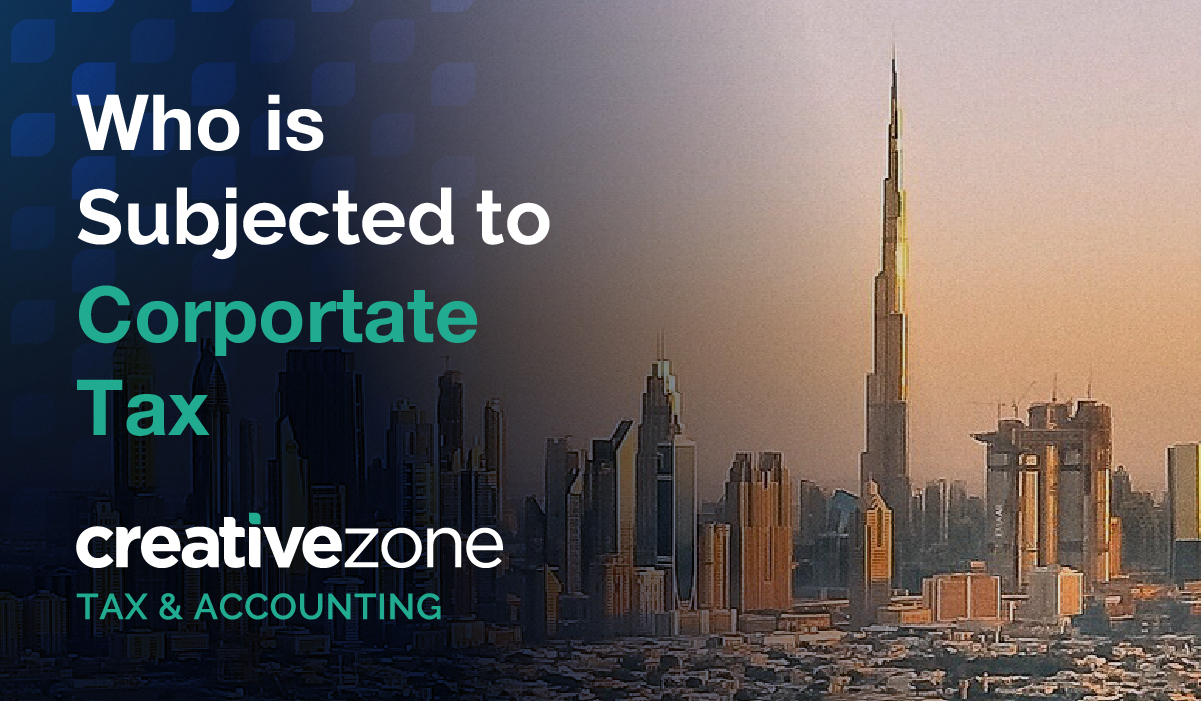 Background
Background
Historically, the UAE has been home to plenty of businesses that have been subject to zero income taxes. With the announcement of federal corporate tax (CT) by the Ministry of Finance (MOF), however, this situation will change. CT will become effective for fiscal years beginning after 1 June 2023. So, who is subject to UAE Corporate tax?
UAE wants to comply with international taxation standards and follow other neighboring Gulf countries that have taken similar steps while minimizing the compliance burden on small businesses and startup companies. The UAE, which is home to the key business hub Dubai, will continue to have one of the lowest corporate tax rates in the world.
According to the UAE Undersecretary of Ministry Of Finance (MOF) Younis Haji Al Khoori, “the certainty of a competitive and best-in-class corporate tax regime, together with the UAE’s extensive double tax treaty network, will cement the UAE’s position as a world-leading hub for business and investment”.
MOF has made a proposal concerning the establishment of a UAE CT program. The program has many main features that may change after it becomes fully operational. The proposed corporate tax regime in UAE raises a number of questions such as Who is subject to UAE corporate tax? Are individuals subject to UAE corporate tax? Will personal income be taxed under the UAE corporate tax?
Who Is Subject To UAE Corporate Tax?
According to the upcoming UAE CT regime, all commercial, industrial, and professional activities taking place in UAE will be subject to a CT regime, except for the extraction of natural resources, which is already subject to tax at an Emirate level and will remain as such.
Individuals will also be subject to the UAE CT regime if they possess a business license or permit allowing them to carry out commercial, industrial, and/or professional activities in the UAE. Professionals who work under a freelance license or permit may receive income from those activities and such professionals may also be subject to the CT regime.
According to the MOF, the future federal CT regime will also apply to banking operations in the United Arab Emirates, even though foreign branches are already subject to a CT regime at the Emirate level.
Additionally, the existing corporate tax incentive schemes that are current available to free zone businesses would retain their effectiveness. This is to the extent that the free zone business complies with all necessary regulatory requirements and is not conducting business on the UAE mainland. Many businesses operating under dual licensing in both mainland UAE and free zones could be in the cross-hairs of this situation.
While free zone businesses are exempt from some UAE CT obligations, they will nevertheless have to register with the CT and file a CT return.
Questions You May Have
Below are some of the most frequently asked questions about UAE CT regimes for different industries.
-
Can multinationals operating in free zones be subject to CT?
A qualifying free zone entity may not have to pay the UAE CT, but a free zone entity affiliated with a large multinational group may be subject to the 15% Global Minimum Tax to be calculated under Pillar Two of the UAE CT. The basic idea is that multinationals with effective tax rates (ETRs) of less than 15% shall have to pay top-up tax outside the UAE.
-
Is CT exempt from UAE holding companies?
UAE CT generally applies to holding companies. However, certain income streams may be exempt from the UAE CT. According to the MOF FAQs, capital gains and dividends from certain qualifying shareholdings will qualify for the UAE CT exemption.
Currently, there is no clear definition of what qualifies as a qualifying shareholding. Generally, holding a qualifying shareholding will satisfy Pillar Two rules if it includes a time period between holding and purchase.
-
Is CT applicable to offshore companies?
There is an offshore company regime in the UAE that allow individuals to register companies in Ras Al Khaimah Economic Zone (RAKEZ) and Jebel Ali Free Zone (JAFZA). The MOF CT FAQs do not specifically say whether companies operating offshore will be subject to UAE CT, but we expect the same will be true for those operating within free zones in general.
-
Is CT applicable to entities owned by the government?
CT FAQs have not yet mentioned whether UAE owned entities will receive preferential treatment under CT. More details will be provided soon on CT exemptions and exclusions.
-
Does CT grouping differ from VAT grouping? Does CT grouping have to coincide with VAT grouping?
UAE CT grouping does not appear to have any link with VAT grouping as of yet.
It appears to be no connection between VAT and CT grouping based on the practices of other tax administrations. The composition of VAT groups can differ from CT groups.
Each entity must file CT returns by default. The UAE allows companies to organize into financial groups or tax groups for the purpose of CT if they decide to do so. It is important to note that under this tax group laws, the tax losses of one company can be offset against the taxable income of another company, so consolidated taxation occurs. There is only one requirement for tax groups, and that is to file one CT return for the entire tax group.
If you have any other question on Corporate Tax, write to us at tax@cztaxaccounting.ae.
